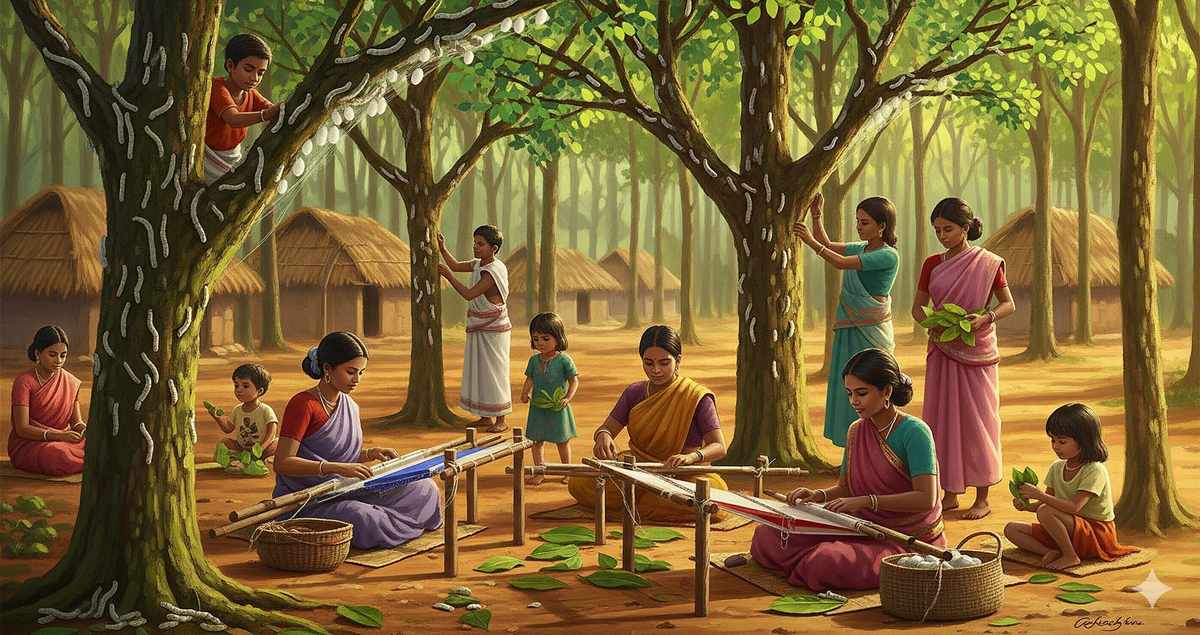Weaving livelihoods: Tasar culture empowers tribals in ASR district
In the quiet forest villages of Alluri Sitharama Raju (ASR) district, the hum of silkworms on Maddi trees has become the sound of livelihood. For many tribal families with no farmland, Tasar sericulture—rearing silkworms and weaving silk—has brought stability and dignity to their lives.
Supported by the Integrated Tribal Development Agency (ITDA), Chinturu, the practice has grown into a community-based activity. Nearly 1,600 families in Kunavaram, Chintoor, and V.R. Puram mandals now depend on Tasar. “On average, a farmer earns about Rs 30,000 per crop, and with three crops a year, it has become a reliable source of income,” said G.V. Hari Krishna, Assistant Sericulture Officer.
The process begins with Disease Free Layings (DFLs), supplied free of cost by the Sericulture Department, which also provides wage support and market linkages. Women’s groups run 10 grainages that produce and distribute DFLs, earning over Rs 1 lakh annually. The region now produces up to 45 lakh cocoons each year, which are sold to traders from other States.
But the focus is shifting to value addition. Training centres for reeling, spinning, and weaving have been set up, with 100 women trained so far. At Paidigudem, young tribals are learning handloom weaving under the Astitva Mahila Samithi. Sarees designed here are already finding markets.
“Our goal is to create a brand—‘Chinturu Tasar Fabrics’—and market it across the country,” said Hari Krishna. “This is not just about silk. It is about livelihoods and empowerment.”
For families once dependent on uncertain forest produce, Tasar culture has become more than a craft. It is a thread connecting tradition, self-reliance, and hope for the future.



